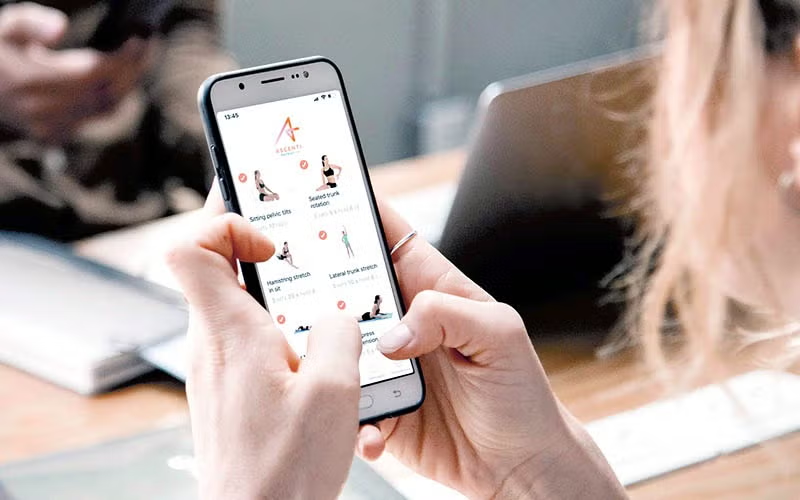
A new app that provides patients with rehabilitation services for musculoskeletal disorders has been launched by physiotherapy provider Ascenti.
PhysioNow, which is prescribed by GPs to patients, provides 24/7 access to expert advice through virtual consultations from more than 300 trained Ascenti therapists and healthcare professionals.
Musculoskeletal disorders are considered the second largest contributor to disability worldwide by the World Health Organization.
Ascenti CEO Stephanie Dobrikova told NS Medical Devices: “Our patient workflow system is completely unique.
“It’s built in-house by our own developers and formed by our own clinical expertise, and because of that we are able to tailor it to every service that we deliver.
“So whether that’s an NHS service or for a private medical insurer or an individual, we make sure that the way they come to our business – the care they receive throughout their treatment life cycle and aftercare – is all managed seamlessly and really efficiently through that workflow system.
“The app integrates with that so all the touchpoints the patient might have are completely seamless.
“It means the patient doesn’t feel like they are entering different pieces of a service – they are all linked together.”
Public Health England says that 16.9% of the UK population have back pain, with between 60% and 80% expected to experience it during their lifetime.

How a physiotherapy app can help treat musculoskeletal disorders
Musculoskeletal disorders are injuries or pains in the support structures that allow a person to move, including the joints, ligaments, muscles, nerves, tendons and structures that support limbs, the neck and back.
The causes vary – muscle tissue damage can be simply caused by the wear and tear of daily activities, mostly a result of overexertion or repetitive motions.
Alongside Ascenti’s patient workflow system, the app tracks a patient’s progress with its tailored rehabilitation programme, while also offering education and self-management advice composed by health professionals.
Ms Dobrikova explained the digital solutions provided are not meant to completely replace “hands-on, face-to-face physiotherapy in any field”.
She added: “Our solution is enhancing a service and enabling people to have treatment in a way that is convenient for them and most appropriate for their injury.
“Not everybody needs to go into a clinic but also not everyone can be treated with digital solutions.
“It’s about making sure the treatment you are given as a patient is appropriate for your needs, whether its digital or non-digital.”
Patients can also use the app to book private and NHS-funded sessions with clinicians for both short-term and long-term musculoskeletal injuries.
Ms Dobrikova, an Imperial College London mechanical engineering graduate, recommends different ways patients can integrate the use of the app and its features depending on the degree of their condition.
She explained patients with lower-level injuries would benefit from a completely digital care plan, whereas for others, a digital exercise prescription with an assigned physio giving a virtual consultation will be more beneficial to check progress is being made.
“Others will still need hands-on physio, they will still need that face-to-face interaction and this really augments that so they can see their physio and have manual treatment,” she added.
“And they will be provided exercises to follow after to maximise their progression and enhance the outcomes through their treatment.”
A beta test version of the app launched earlier this year and has already been used by 1,400 patients (Credit: Ascenti)
The videos demonstrating exercises can be carried out in the comfort of the patient’s home, while their progression is adjusted according to real-time patient feedback.
It’s processed within the same system that supports them in all other aspects of their daily role – from writing treatment notes to accessing clinical dairies – designed to reduce the number of physiotherapy sessions required for NHS and private patients.
Ms Dobrikova added: “Our mission is to continue to deliver the very best musculoskeletal healthcare in the market.
“We are always looking for new solutions and things that can enhance treatment.
“That might be supportive by AI, there might be more advanced digital triage solutions that we can develop in the future.
“We are constantly evolving and constantly learning from what we are doing and taking it forward.”




